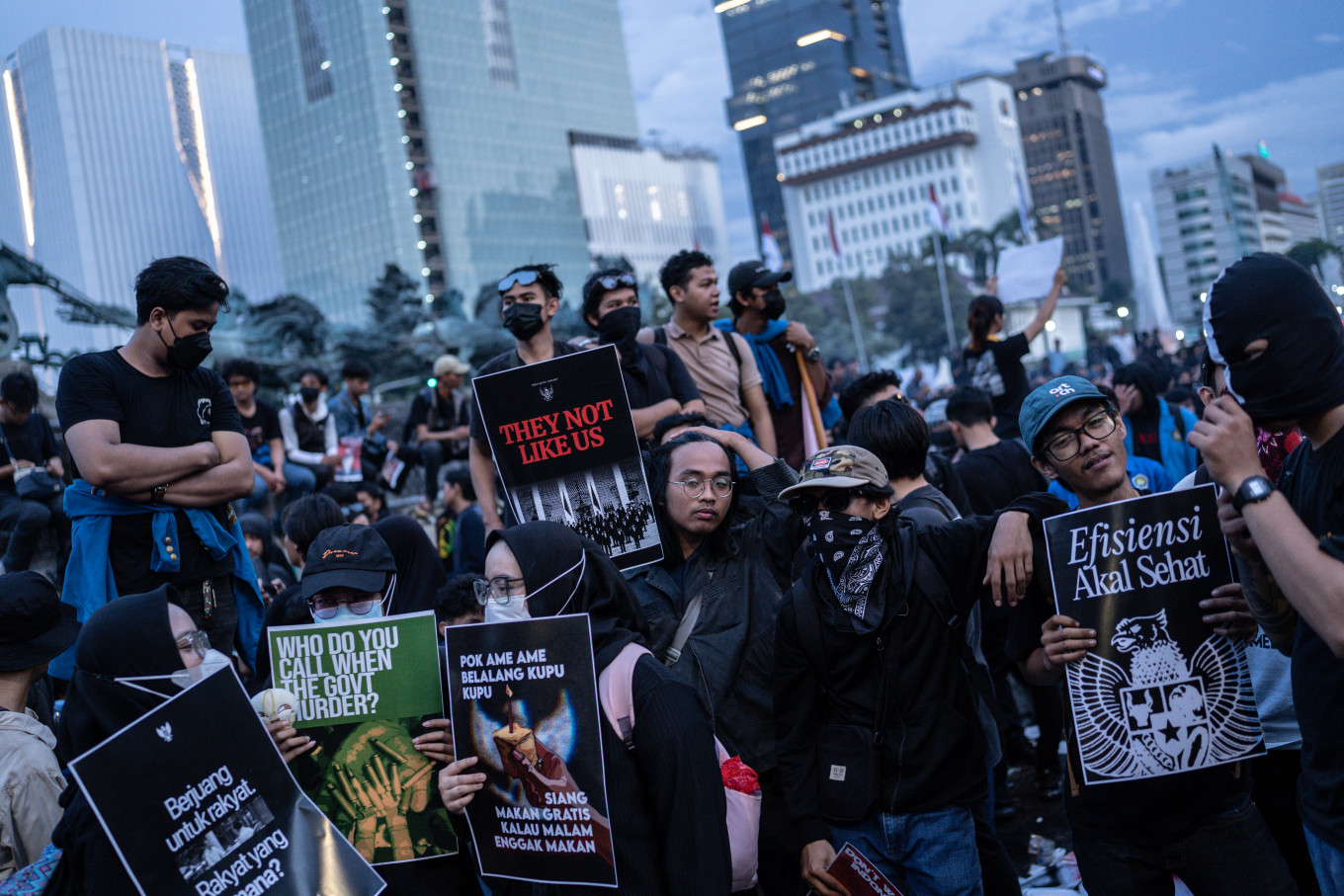Popular Reads
Top Results
Can't find what you're looking for?
View all search resultsPopular Reads
Top Results
Can't find what you're looking for?
View all search resultsDanantara and the austerity paradox
For many Indonesians, the promise of prosperity tomorrow rings hollow as they struggle to meet their basic needs today.
Change text size
Gift Premium Articles
to Anyone
T
he government’s drive to save US$44 billion through massive state budget cuts is a certainly a feat, but when we heard that some $20 billion was set to be channeled to the sovereign wealth fund Danantara, questions and concerns began to arise.
President Prabowo Subianto announced on Feb. 15 that his administration would be imposing multiple phases of fiscal consolidation this year to achieve its savings target.
The first chunk, Rp 300 trillion (US$18.4 billion), was taken from a discretionary fund set aside in the 2025 state budget for unforeseen events. Another Rp 250 trillion was taken from the budgets of ministries and agencies, which the President ordered early this year. The rest, some Rp 200 trillion, is to be taken from SOE dividends.
While $20 billion will go to Danantara, some $24 billion was set aside to fund Prabowo’s flagship free nutritious meals program.
The drastic budget cuts were a surprise, given that Prabowo had signaled he would pursue an expansionary fiscal policy.
This could be done by either raising tax revenue or debt issuance, but the two were clearly not doable. The former would require massive and lengthy reforms, while the latter would be catastrophic as Prabowo faces Rp 800 trillion in maturing public debt in his first year in office.
We did not expect the austerity measures to be this brutal. We would have welcomed well-considered cuts for the sake of efficiency, but nobody wants measures that could risk public services and the economy.
It is no wonder that the public, represented by students nationwide, has rallied against the government.
Prabowo may try to justify his Danantara dream with rosy-eyed projections and promises of repeating the success of Singapore’s Temasek, but for many Indonesians, the promise of prosperity tomorrow rings hollow as they struggle to meet their basic needs today.
Danantara is set to kick-start 15 multibillion-dollar megaprojects, including in renewables, advanced manufacturing, downstreaming and food production, that are projected to yield long-term economic benefits. But how much will trickle down to the average Indonesians?
While these projects are undoubtedly important, they do little to address the immediate needs of the people, who are more concerned with unemployment and diminishing purchasing power.
The proliferating social media hashtag #KaburAjaDulu (just flee already) is a testament to that fear.
Businesses have also raised concerns about the possibility that economic growth will slow further amid a half-hearted stimulus from the new administration.
Furthermore, the newly revised State-Owned Enterprises (SOEs) Law has a stipulation that grants legal immunity to Danantara and administrators of state-run enterprises as long as they make business decisions in good faith and without conflict of interest.
This would make Danantara completely dependent on Prabowo and a management team of his choice. Given the country’s weak corruption eradication efforts and the government’s tendency to award SOE positions for political patronage, this seems unlikely to be sufficient oversight.
The concerns that the administration could make the same make as Malaysia, with its 1MDB scandal, are not unfounded. The scandal led to significant economic repercussions for our neighbor, especially in areas of fiscal health and investor confidence.
Danantara, which is set to launch on Monday, must address these concerns if it is serious about securing public confidence, an important aspect that Prabowo’s $20 billion injection alone will not buy.
The current austerity measures demonstrate the government’s commitment to fiscal discipline, but only time will tell if redirecting those savings to Danantara will be worthwhile for the average Indonesian.











